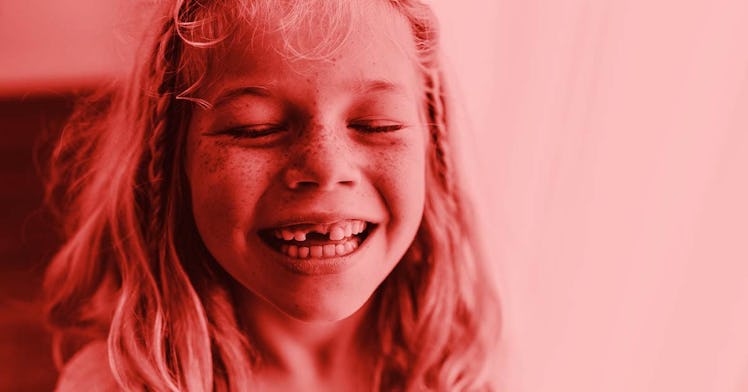Kids and Cavities: What Parents Need to Know About Rotten Baby Teeth
Even though baby teeth fall out, it’s important to keep them as healthy as possible.

Fighting cavities in kids can sometimes feel like it isn’t worth the tremendous effort that goes into convincing them to brush their teeth. In a rush to get them off to school in the morning or off to bed at night, skipping the oral upkeep is a mighty tempting prospect. After all, is it worth going all out to prevent cavities in baby teeth if they are only going to get a six year run before bigger and better models replace them? And is there even enough time for kids to develop rotten teeth before their permanent ones come in?
It turns out diligence most certainly pays off. Kids’ teeth are highly susceptible to cavities, which can raise a whole host of future issues more difficult than the occasional tooth brushing meltdown.
What Causes Cavities in Kids?
In short, it’s the same process that causes cavities in adults: enamel eroding and exposing the tooth pulp. But there’s a difference in baby teeth, explains Dr. Kami Hoss, the founder of The Super Dentists. “The enamel on baby teeth is thinner than on permanent teeth, and the pulp is relatively larger,” he says. “So damage can happen much quicker than with permanent teeth.”
Dr. Hoss encourages people to think of their mouth as a garden that requires various types of maintenance to remain healthy. Our mouths contain 700-800 species of microbe and 5 to 10 billion microbes in total. Together, these microbes create the thin, clear, and slimy biofilm that coats everything inside your mouth. Gross? Sure. But as long as you have a mouth, microbes will always find it a happy place to live and create a biofilm. You can, however, keep them balanced and working in your favor.
When we neglect oral hygiene, the biofilm on our teeth becomes thicker, whiter, and sometimes even a bit yellow. These changes signal that some types of unhealthy microbes in our mouth are feeding on the sugars they find, and in the process, secreting acids that drop the pH — a condition that favors the unhealthy microbes. A cycle of increasing acidity causes enamel to move away from the teeth and into the saliva, leaving tooth pulp exposed.
What’s Wrong with Cavities in Baby Teeth?
Temporary does not mean disposable. There are many reasons why it’s essential to keep baby teeth healthy and intact until they are ready to come out on their own.
Baby teeth hold space for permanent teeth, so losing them too early can create problems down the road. “Baby teeth around the removed tooth will drift into that space and could block the eruption of the permanent tooth that’s supposed to come in there,” explains Dr. Hoss. “That can then cause a major orthodontic problem down the road.”
Additionally, there are functional reasons that baby teeth are essential for a child’s growth and development. Healthy teeth support proper digestion by ensuring kids can eat correctly, and they also have a role to play in language and speech advancement.
Dr. Hoss notes that there are self-confidence implications when kids don’t have healthy teeth. “Weight and teeth are the two reasons kids get bullied the most. If they aren’t speaking well or don’t feel like they can smile because they will get made fun of, then kids may develop an unhealthy self-concept at an early age.”
Prevention
Regular dental visits starting no later than the appearance of your child’s first tooth allows your provider to monitor the health of your child’s mouth.
What kids eat and how they eat are also important. “I’m a dad,” says Dr. Hoss. “I have an 8-year-old. I’m not saying you should never have candy or that you need to boycott Halloween. But we have to view sugar as something we enjoy in moderation. Not only candy but also fruit juice, white bread, and flour.”
While the science of how cavities develop is more nuanced than most people are aware of, many preventative measures are common sense. And a kid who learns how to care for their baby teeth will have developed good habits when their permanent teeth come in. That will save both you and them a lot of time, money, and pain in the long run.
This article was originally published on